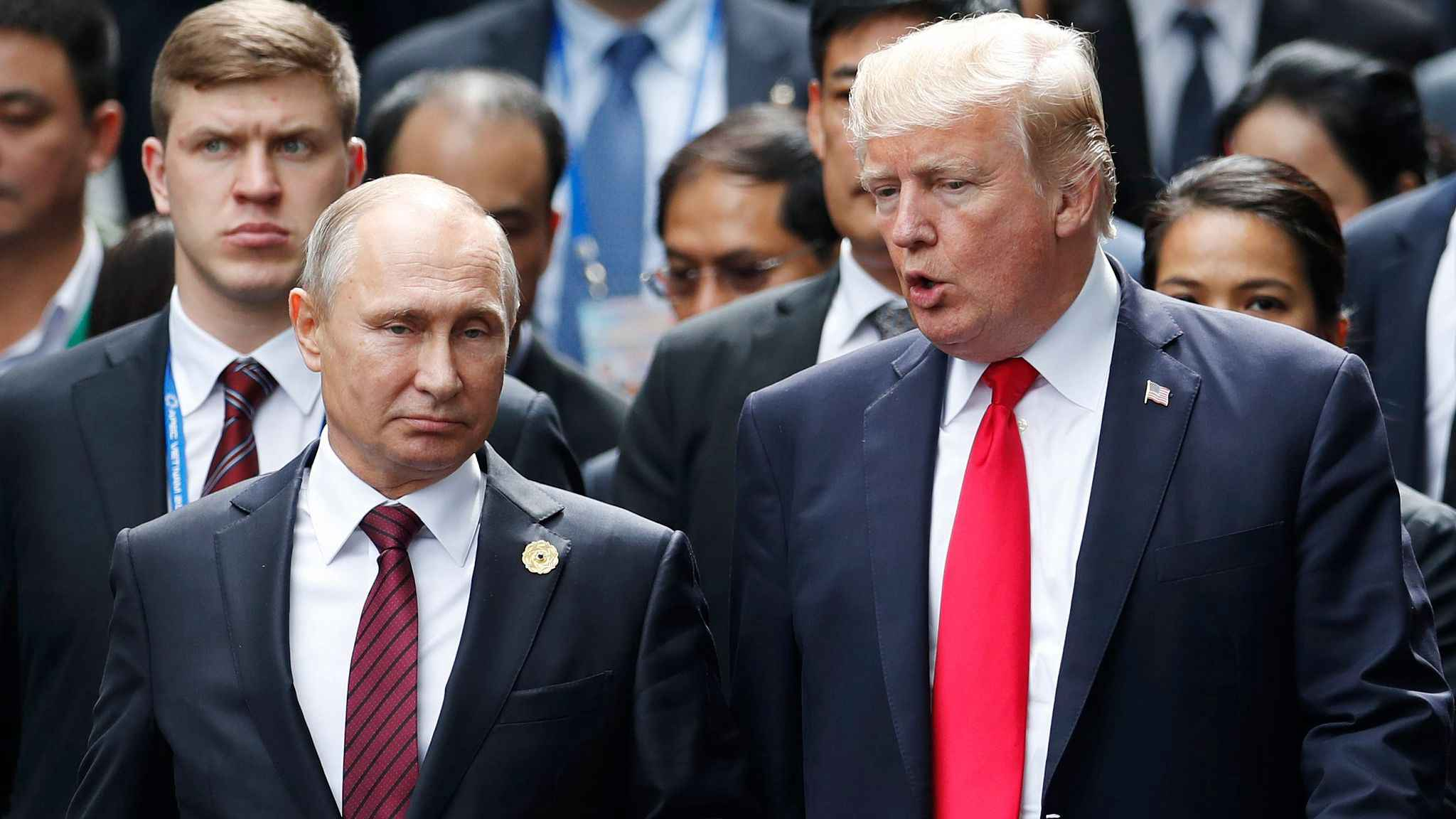
(Photo: CGTN)
Editor’s note: Andrey Kortunov is the director general of the Russian International Affairs Council. The article reflects the author's opinion, and not necessarily the views of CGTN.
Friends, rivals, foes, enemies – just a few of the words used to describe the dynamic between Russian President Vladimir Putin and US counterpart Donald Trump.
No one quite knows what the leaders are seeking when they meet in Helsinki on Monday, particularly the intentions of Trump. Does he have a grand strategy on Syria, a proposal on Iran, or is he seeking help in his Korean Peninsula negotiations?
To some of my friends and colleagues in Beijing, the true purpose of the US president is to drive a wedge between Russia and China. I dismiss these fears as ungrounded and irrelevant.
The Putin-Trump meeting demonstrates once again the crystal-clear reality: Trump can offer Putin nothing so attractive and so tempting that could put into question the centrality of China to Russia’s foreign policy.
I sincerely hope US-Russian relations could get better; it is hard to get worse than they are now.
To restore currently frozen communication lines, to activate bilateral strategic arms control, to moderate hostile rhetoric and to advance the US-Russian cooperation in places like Syria or on matters like international terrorism of nuclear proliferation would benefit everybody, China included.
Without a stable relationship between Moscow and Washington, the world will never be a safe place. However, any substantial progress between Moscow and Washington is likely to be an uphill battle.
The US economic sanctions against Russia will remain in place for a long, long time. Strategic arms control, even if completely restored, will not change the adversarial nature of the US-Russian military interaction. Deep disagreements about the very core issues of international relations and about important regional conflicts will stay with us as well.
Trump’s efforts to reach out to Putin might well be benign and benevolent, but Trump represents a minority view within the US political establishment. Almost all of his initiatives vis-à-vis Russia are reversible.
The mainstream media can harshly criticize it, the Congress can legally overrule it, and bureaucracies within his own administration can tacitly sabotage it.
Many years ago, crafty Henry Kissinger was able to make full use of contradictions between Beijing and Moscow to get the United States a privileged position within the US-Soviet-Chinese geopolitical triangle. These days such a trick will not work.
First, the Russian-Chinese cooperation has reached a point of no return, so that no external influences can erode or undermine it.
Second, the United States is going through a deep domestic political crisis, which severely limits its capacities to pursue a long-term consistent and well-calibrated foreign policy.
Third, traditional geopolitics simply cannot succeed in the globalized world of the 21st century.
If in years to come we do see a US-Russian-Chinese triangle reemerging, it has to be a triangle of shared global responsibilities and multilateral cooperation rather than a triangle of great power rivalries and confrontation.


